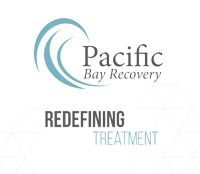House of Metamorphosis HOM
Drug Rehab Center in San Diego, California
House of Metamorphosis (HOM) is a leading addiction treatment facility in San Diego, California, offering evidence-based, individualized treatment for individuals suffering from addictions to drugs, alcohol, and opioids, as well as dual diagnosis and substance abuse, with a holistic approach to health and wellbeing.
About House of Metamorphosis HOM in California
House of Metamorphosis HOM, located in San Diego, CA, offers a comprehensive residential treatment program for men and women seeking recovery from addiction. With a focus on alcohol and drug rehab, the facility integrates a clinical, holistic, and psychosocial approach into its services, providing care for up to 62 residents. This program is distinguished by its wide range of therapies and readiness training options.
Accredited by SAMHSA and holding a state license, House of Metamorphosis HOM is recognized for its commitment to quality care and its evidence-based treatment modalities. It accepts most insurance plans, facilitating access to its residential treatment, sober living environments, outpatient programs, and an extensive array of support services designed to aid clients in transitioning to a sober lifestyle.
- Comprehensive Support Services: From HIV/AIDS awareness to employment readiness and family therapy, the array of support is tailored to foster comprehensive recovery.
- Structured Phased Program: A 90-day residential treatment featuring a step-by-step approach to recovery, emphasizing stabilization and preparation for a traditional lifestyle.
- Individualized Treatment Plans: Focused on using evidence-based therapies, HOM creates personalized plans that may include medication, psychotherapy, and a combination of other supportive services.
House of Metamorphosis HOM addresses addictions to drugs, alcohol, and opioids, along with dual diagnosis and substance abuse issues. It employs a variety of treatment methods, including individual and group therapy, 12-step meetings, and psychosocial evaluations. The facility offers different levels of care including residential treatment, aftercare support, and options for sober living to ensure each individual has the resources for sustained sobriety.
Genders
Ages
Modality
Additional
Accreditations
State License
SAMHSA
Conditions and Issues Treated
Opioid addiction starts when a person becomes addicted to legal or illegal opioids. The addiction can happen quickly, in just a matter of days. Opioid withdrawal can be extremely uncomfortable and lead the user to continue to use even if they want to quit. Stopping using an opioid requires medical observation. Sometimes inpatient treatment with a medically supervised detox is necessary for managing the withdrawal process while learning lasting tools for maintaining recovery. Medications may be used in some cases of opioid addiction.
Opioid addiction is one of California‘s most prominent forms of addiction. It’s treated by detoxifying the body so that the chemicals from the medications no longer impact them and by therapies to correct behavior and target the root of the problem.
Recovery is not simply about stopping drug use. Recovery is working with addiction while recovering mental health issues that are fueling the addiction in the first place.
Levels of Care Offered
This center offers a variety of custom treatment tailored to individual recovery. Currently available are Aftercare Support, Dual-Diagnosis, Inpatient, Sober-Living / Half-Way, with additional therapies available as listed below.
Individuals who are suffering from severe addiction or have a high risk for dangerous health concerns are often recommended to receive inpatient treatment.
Choosing to enter an inpatient treatment program is beneficial for people who are suffering from severe addiction, or who have a high risk for dangerous health concerns.
Inpatient treatment is beneficial for:
- People who have a history of severe withdrawal.
- People who have attempted to overcome addiction on their own without success.
- People who have a history of relapse, or have recently relapsed.
- People at risk for drug overdose or withdrawal-related complications.
- People with medical conditions that are worsened by drug or alcohol use.
Sober living homes (abbreviated SLHs or sometimes sober houses) are temporary housing for recovering addicts. The typical SLH functions as a halfway house, providing a stable living environment for addicts in recovery. While at an SLH, residents typically meet with various therapists on site and attend regular 12-step meetings as well as other recovery group meetings.
Aftercare support should take place after outpatient treatment has ended. There are a few different types of aftercare support that patients can seek. These include 12 Step, Self-help groups (AA, NA), Therapeutic communities, Long-term, structured sober living arrangements, and Halfway houses (residential treatment centers).
Therapies & Programs
Individual therapy involves one-on-one sessions between the patient and therapist. It provides patients with a safe environment to openly discuss personal and sensitive issues with the therapist. They find the therapist as someone they can trust. Individual therapy aims to identify the core issues that would have led the patient to substance abuse and address them effectively. The therapist can develop patient-specific customized solutions through individual therapy, which aids speedier recovery.
Groups typically involve meetings with other recovering addicts who can relate to one another’s experiences. They might meet in person or online and typically focus on the process of staying sober rather than overcoming a specific addiction.
In these groups managed by House of Metamorphosis HOM, addicts can build a sense of community and develop strong emotional connections with others who understand what they are going through. These beneficial relationships can help addicts overcome their cravings and prevent relapse at any point during the recovery process.
In general, trauma therapy is a clinical process that helps individuals deal with mental stress often caused by traumatic events. The therapist helps the person identify, understand, and work through the problem. This is done with the help of talking about it in group or one-on-one counseling sessions. Therapists use relaxation, role-playing, art, and music to help the person open up about what is bothering them.
There are many different types of trauma therapists, such as psychiatric nurses and counselors. Not everyone is a good candidate for this type of therapy; it is generally reserved for people who have recently experienced a traumatic event and struggle to get over it. It is often done for children, teenage victims of sexual assault, and war veterans.
There is hope for people who are addicted to drugs and alcohol. Cognitive Behavioral Therapy (CBT) is the solution. CBT focuses on the underlying thoughts and behaviors that caused the addiction problem in the first place and may cause a relapse. This type of psychotherapy addresses negative feelings common in substance abuse disorders. It helps to change them by restructuring thought patterns. It’s about removing negative thoughts and providing long-term benefits while promoting self-awareness, self-control, and healthy ways to respond to negative thoughts. These sessions can be done by themselves or as part of combination therapy.
REBT, or Rational Emotional Behavior Therapy, is a way of replacing negative thoughts with positive ones. It teaches people how to deal effectively with their unwanted habits and emotions. Some common problems people have are procrastination, unhealthy eating, and angry outbursts. Learning how to deal with these problems in a productive manner makes them less apt to come back.
Since addiction is a chronic physical and mental illness, addicts need to learn as many life skills as possible. Many drug treatment centers offer life skills activities as part of their addiction recovery programs. Examples include cooking classes, employment training, resume writing seminars, parenting classes, and computer training. Life skills activities help addicts find employment, take care of their families, and give back to the community.
Payment Options Accepted
For specific insurance or payment methods please contact us.
Additional Details
Specifics, location, and helpful extra information.
San Diego, California 92102 Phone Number(619) 236-9492 Meta DetailsUpdated April 15, 2024
Staff Verified
House of Metamorphosis HOM Patient Reviews
There are no reviews yet. Be the first one to write one.
San Diego, California Addiction Information
More than 3 million of California's citizens are addicted to illegal drugs. Almost 800,000 people use hard drugs, almost 5 million use marijuana, and another 2.1 million abuse alcohol every year. Other substance abuse issues such as binge drinking and teen drug use are also common. Many illegal drugs such as cocaine, heroin, methamphetamine, and marijuana are smuggled into the state from Mexico.
Nearly 2,000 people die from a drug overdose each year in San Diego. Of the total population of San Diego, approximately 9.5% reported illicit drug use. According to recent statistics, drug addiction and abuse are among the top causes of preventable death in San Diego. There are rehab programs specifically tailored to meet the needs of women, men, young adults, or those with co-occurring mental health disorders.
Treatment in Nearby Cities
- Oxnard, CA (156.5 mi.)
- Eureka, CA (681.4 mi.)
- Agoura Hills, CA (137.1 mi.)
- Santa Fe Springs, CA (101.7 mi.)
- Walnut Creek, CA (454.6 mi.)
Centers near House of Metamorphosis HOM
The facility name, logo and brand are the property and registered trademarks of House of Metamorphosis HOM, and are being used for identification and informational purposes only. Use of these names, logos and brands shall not imply endorsement. RehabNow.org is not affiliated with or sponsored by House of Metamorphosis HOM.






